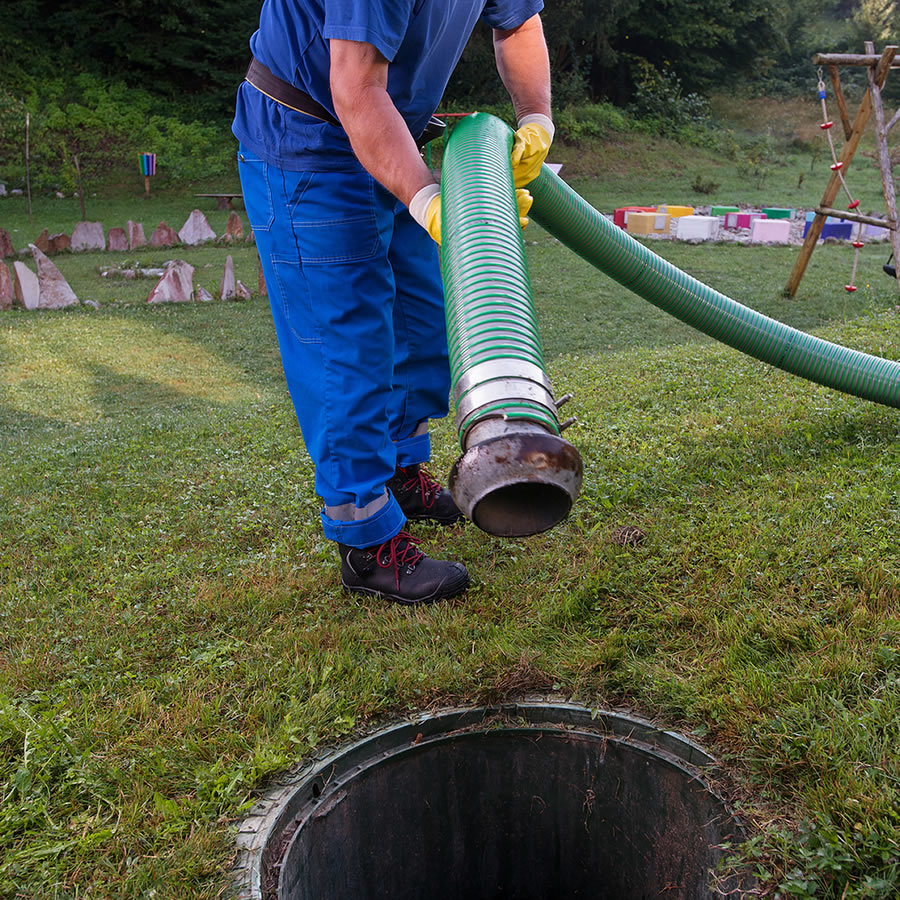
19
If you are among the twenty percent of homeowners whose home is NOT connected to a centralized sewer system, then you likely have a septic system installed on your property. Though you are saved from paying monthly sewer bills, the septic system’s maintenance and repairs are fully your responsibility. Luckily, you have septic companies like Charlotte Septic Pros on your side. Here are some of our major septic maintenance tips. If you have any additional questions or concerns, or if it is time for your septic tank cleaning or septic pumping, then call Charlotte Septic Pros today. We are thrilled to serve Charlotte and surrounding areas.
The septic tank is buried underground, so it’s not exactly feasible to "check on it" whenever you want. Even if you could, most homeowners don’t want to open the lid and let that stench out. Still, routine inspections are crucial. As you know, the septic tank is limited in capacity. If the tank overloads, then you could end up dealing with a lot of, well, stink. Overloaded septic tanks can cause sewage leaks and sewage backups. Yuck!
So, what do you do about that full septic tank? First of all, you never want it to fill to the brim. We recommend homeowners schedule a septic tank pumping once every two to four years depending on the size of the tank and your household’s activity levels. We also recommend a septic tank cleaning once every other septic pumping appointment. Septic pumping quickly frees up space while septic cleaning is like deep cleaning.
We mentioned overloaded septic tanks earlier, but let’s dive deeper – metaphorically. Septic tanks fill over time, but they can also fill up suddenly if you are not careful. Use water efficiently to avoid such disasters. If you depend on a septic system, then installing a jacuzzi is probably a bad idea. Further, avoid running the dishwasher and laundry machines at the same time. Stagger water usage to avoid overwhelming the septic tank and drain field.
Your septic system is a lot more sensitive than a centralized sewer system. So, you have to be extra mindful of what goes in the drains and toilet. Here are some things to keep in mind:
Your drain field is where the wastewater goes and filters through the soil for treatment. As you can imagine, the drain field is sensitive to pressure. Compacted soil will cause problems. Therefore, do NOT park on or drive over the drain field. Similarly, do NOT plant trees or install structures on top of the drain field or near it. You should also make sure drainage does not lead water to the drain field as this can overwhelm the drain field.

22
Can Bacteria Additives Eliminate the Need for Pumping? If you own a home with a septic system, you’ve probably seen…
Read more
12
A single slow drain in your home can feel like a minor inconvenience. Maybe the sink takes a little longer…
Read more
05
Are Slow Drains a Septic Issue or Just a Clog? Slow drains are one of those household problems that start…
Read more
02
What Septic Service Techs See That Homeowners Miss Most homeowners only think about their septic system when something goes wrong.…
Read more
21
Simple Habits That Protect Your Septic System A well-functioning septic system does its job quietly, but the moment something goes…
Read more
14
Pump Now or Pay Later: The Real Cost of Skipping Maintenance A properly functioning septic system is easy to forget…
Read more
11
Why Your Septic System Always Acts Up at the Worst Time Homeowners often feel that septic problems strike at the…
Read more
04
Early Warning Signs Your Septic Tank Needs Pumping For homeowners who rely on a septic system, routine maintenance is not…
Read more
29
Why Does My Septic System Smell Fine One Day and Terrible the Next? If you own a home with a…
Read more
19
Is Your Septic System Overdue? Simple Home Checks You Can Do Today For many homeowners, the septic system is a…
Read more